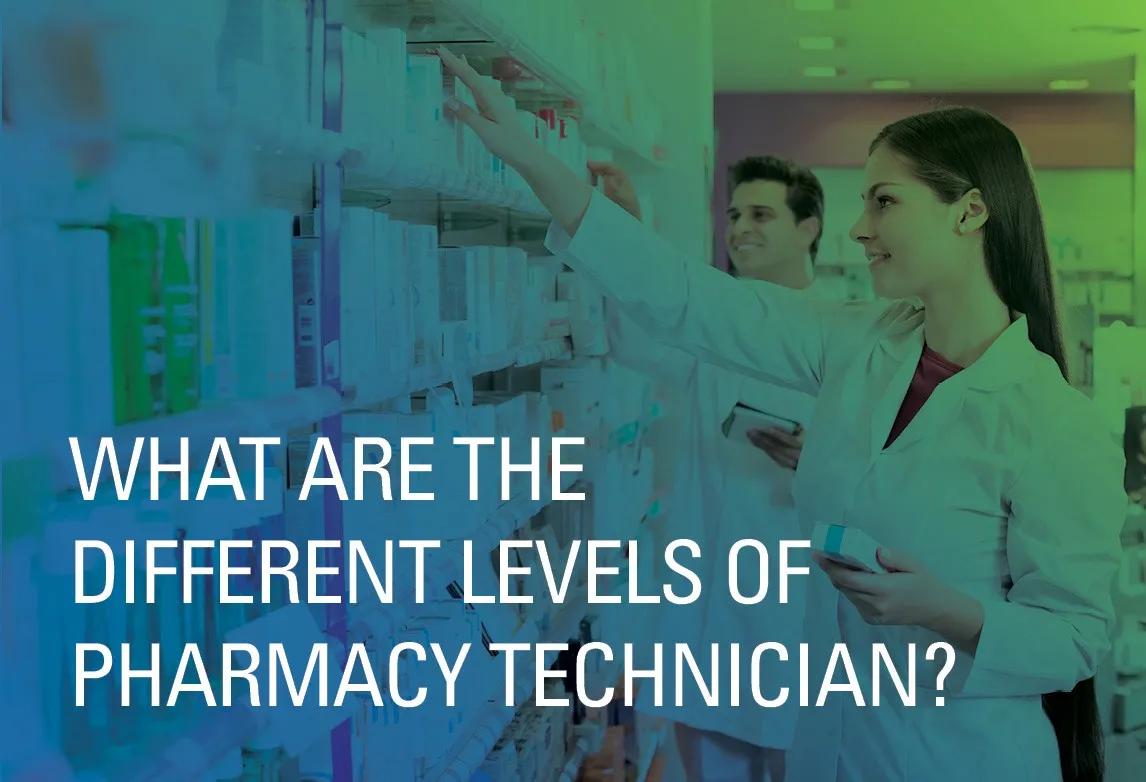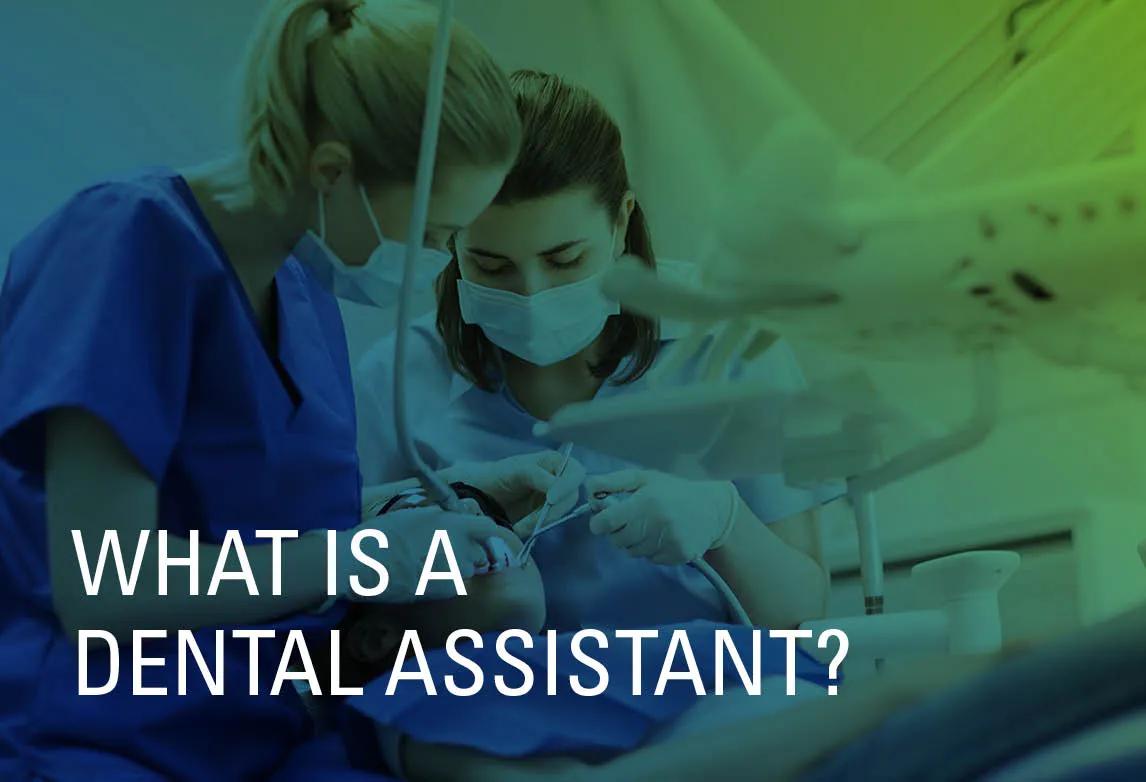What Are the Different Levels of Pharmacy Technician?

The pharmacy technician career path looks more like a tree full of branches than a straight line. What do we mean by this? Not all pharm techs do the same type of work, with different positions offering a diverse array of roles and responsibilities.
Choosing the best path for you involves understanding not only what a pharmacy tech does, but also a few of your options in this field. One way to differentiate these options is through the various pharmacy technician levels, as well as the training and education required for each.
What Is a Pharmacy Technician?
Pharmacy technicians help prepare and dispense prescription medications. This may entail:
- Entering patient and medication information into the pharmacy’s computer system
- Measuring medications to ensure that they are accurate as prescribed
- Packaging and labeling medications before providing them to the customer or patient
Pharmacy technicians perform these duties under the supervision of licensed pharmacists. Working in this role might also involve assisting with inventory management, providing customer service (answering the phone, ringing up prescription purchases, processing insurance claims, etc.), and the performance of any other duties as assigned.
You can find pharm techs in a variety of settings, from retail pharmacies to compounding pharmacies to mail-order pharmacies. Some healthcare facilities also hire pharmacy technicians, such as hospitals or urgent cares that dispense prescription medications.
Related: What Is It Like to Be a Pharmacy Technician?
The Different Levels of Pharmacy Technicians
Pharmacy technician roles can be differentiated by their levels, of which there are three. It should be noted that, while we refer to them as level I pharmacy technician, level II pharmacy technician, and level III pharmacy technician, these three levels are also sometimes referred to with the numbers after the title (pharmacy technician I, pharmacy technician II, and pharmacy technician III).
What Is a Level I Pharmacy Technician?
A level I pharmacy tech performs basic pharmaceutical functions, such as those listed above. Thus, if you are just beginning your career, you will likely be in a level I position.
There are a few ways to become a pharmacy technician at this foundational level. One option is to obtain your high school diploma and engage in on-the-job training. Another is to complete a pharmacy tech training program, with a third option being earning your pharmacy technician degree.
The route you choose may depend, in part, on your state’s requirements for healthcare professionals working in this particular role. The Bureau of Labor Statistics (BLS) reports that most states regulate the pharmacy technician position, and this regulation may require that you complete an advanced training program, earn a degree, or obtain your certification.1
Your employer may have specific requirements in place as well. Paying close attention to the job description can help you identify the qualifications you need for the pharmacy technician jobs that you wish to apply for.
What Is a Level II Pharmacy Technician?
In addition to the duties assigned to a level I tech, level II pharmacy technicians often perform more advanced pharmaceutical duties as well. This may include preparing more complex medications, maintaining patient and medication files, and compiling pharmacy statistics. Some level II techs are also tasked with managing and/or training level I pharmacy technicians.
A level II pharmacy tech is typically required to have more education and/or training than a level I tech. This training may be by way of completing a pharmacy technician training or degree program. It might also include passing an exam administered by the Pharmacy Technician Certification Board (PTCB) or National Healthcareer Association (NHA), earning you the designation of certified pharmacy technician.
A level II pharmacy tech also often has more experience. Some employers require that level II techs have between one and three years of experience as a pharmacy technician to qualify for this more advanced position.
Related: Pharmacy Technician Certification (CPhT) Overview
What Is a Level III Pharmacy Technician?
A level III pharmacy technician can perform the same duties as a level I and level II pharm tech, with a few additions. Depending on the employer, these additions may include assigning duties to other pharmacy techs, creating and prioritizing daily work, assisting with the hiring of new pharmacy technicians, maintaining the pharmacy’s computer system and databases, and ensuring that the pharmaceuticals are handled as required by regulatory agencies.
Just as with level II pharmacy techs, individuals interested in pursuing this more advanced role are generally required to complete formal training or certificate programs. More experience is often requested as well, with some employers requiring at least three years in a level II role.
The Benefits of Working as a Level II or III Pharmacy Technician
One of the benefits of pursuing a level II or level III pharmacy tech role is that both come with increased responsibility. If you’re the type of person who likes to continue to progress in the duties you’re assigned within your career role, each one offers this ability.
Working in a pharmacy that employs all three levels of pharmacy technicians also provides the opportunity to advance to a higher-level position if this is your goal. It could give you something to strive for, working your way from one level to the next.
Performing pharmacy technician duties as a level II or III may also increase your salary potential. The BLS indicates that the median pay in May 2020 for a pharmacy tech was $35,100 per year.2 However, as education increases, salary potential tends to increase as well.3
How to Begin a Career as a Pharmacy Technician
If you’d like to begin your pharmacy technician career path, one way to achieve this goal is by completing an educational program. This helps provide the knowledge and skills needed to perform the duties typically assigned to this role.
Ultimate Medical Academy (UMA) offers a Health Sciences – Pharmacy Technician associate degree program. One thing that sets this program apart from some of the other pharmacy technician programs is that it is available online. It also provides 180 hours of an on-site externship to further enhance your skills while also providing experience before beginning your pharm tech job search.
Students completing UMA’s Health Sciences – Pharmacy Technician associate degree program are also prepared to sit for the Pharmacy Technician Certification Exam (PTCE).4 We also continue to work with you post-graduation, helping you with your resume and providing advice on what to expect in your upcoming interviews.
If you’re ready to begin your career as a pharmacy technician, UMA is here to help every step of the way!
1 Bureau of Labor Statistics. Occupational Outlook Handbook. Pharmacy Technicians. https://www.bls.gov/ooh/healthcare/pharmacy-technicians.htm#tab-4
2 Bureau of Labor Statistics. Occupational Outlook Handbook. Pharmacy Technicians. https://www.bls.gov/ooh/healthcare/pharmacy-technicians.htm#tab-1
3 Bureau of Labor Statistics. Employment Projections. Education Pays. https://www.bls.gov/emp/chart-unemployment-earnings-education.htm
4 Learners must meet eligibility criteria to sit for applicable certification exams.
Request Information
Talk with us. Start your journey.
Complete this form and we'll call you to explore options at UMA and answer your questions. We'll also email you info on how to get started. We're with you at every step!
Request Information
Talk with us. Start your journey.
Complete this form and we'll call you to explore options at UMA and answer your questions. We'll also email you info on how to get started. We're with you at every step!
About the Author
 Adam Fenster
Adam FensterAdam Fenster is a senior copywriter at Ultimate Medical Academy, with journalism experience from his time as a reporter and editor for multiple online and print publications. Adam has been covering healthcare education since 2019, with an emphasis on topics such as wellness, healthcare employment, and job preparedness. He received his BA in journalism from the University of South Florida.
Related Content


